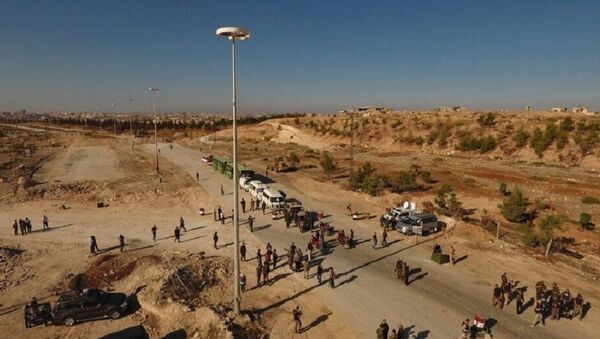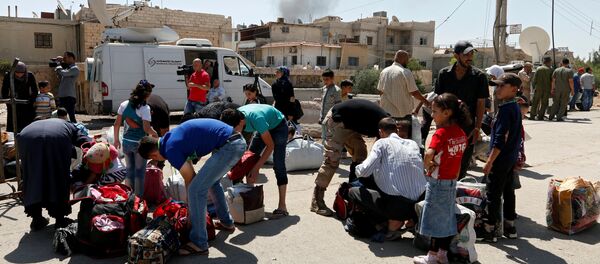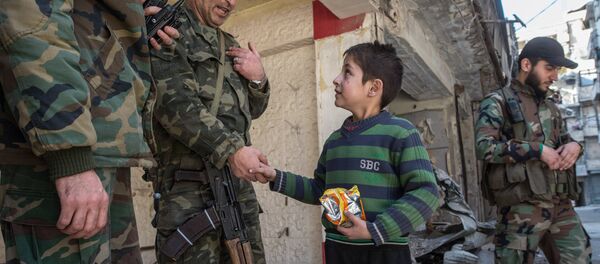MOSCOW (Sputnik) — The statement by Salib comes against the background of the ongoing crisis of Aleppo, where the Western part is controlled by the government forces and the eastern — by terrorists and rebel groups.
"The best recipe is… for the terrorist groups to just leave the city. If they leave, there will be no terrorist attacks on the civilians in the other part of the city and reconciliation can be implemented where the real moderate groups, if some are still there, can take control of the city and just let state services enter and normal life will begin again," Salib said in Moscow at a press conference hosted by the Rossiya Segodnya International Information Agency.
Earlier in the day, the Russian Foreign Ministry said Russian and Syrian foreign ministers will focus on the humanitarian situation in the Syrian city of Aleppo, and on counterterror efforts during their talks in Moscow on Friday.
The humanitarian situation on the ground is critical as during the latest humanitarian pause installed by Russian and Syrian forces the terrorist groups did not let any civilians flee the eastern part.
On Tuesday, the Russian General Staff said the moratorium on Russian and Syrian airstrikes in the 10-kilometer radius (6.2 mile radius) around Aleppo, effective since October 18, will be extended.
Speaking about the division of Aleppo, Agnes Mariam Salib noted that the city should still be perceived as a single entity.
"The artificial underlining that there is an Eastern Aleppo or Western Aleppo is a false statement. There is one Aleppo, one Syrian population," Salib said.
Double Standards in International Law
Salib continued saying that some states prefer to ignore that Russia is acting in Syria in accordance with the international law.
"The Russian intervention is Syria is based on the international law. But it is not recognized by many international powers because the international law application became selective. If you want and you are powerful you can bypass the international law…. We are facing a very unbalanced vision and horizon of human rights and laws," Salib said.
On Monday, media reported that about 80 human rights and humanitarian organizations, including Human Rights Watch, CARE International and Refugees International, called to exclude Russia from the United Nations’ Human Rights Council (UNHRC) over Russia's Syria policy.
On Tuesday, Russian UN Ambassador Vitaly Churkin said Russia expects to retain its seat on the UNHRC and hopes for a non-politicized approach to the panel’s work.





